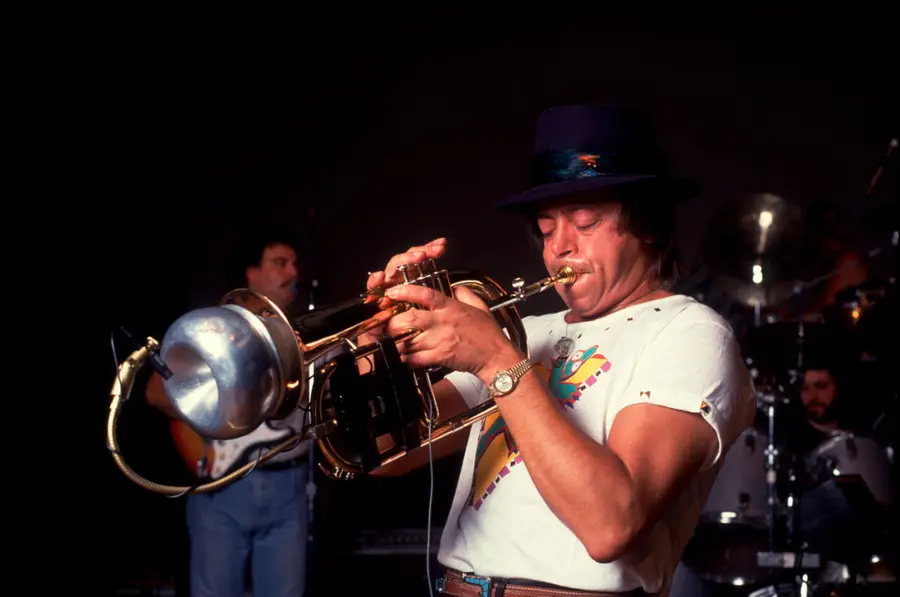What was Chuck Mangione's Net Worth?
Chuck Mangione was a Grammy-winning flugelhornist, composer, and bandleader who had a net worth of $2 million at the time of his death. Chuck Mangione's lyrical jazz-pop sound helped define the "smooth jazz" genre and brought instrumental music to mainstream audiences in the 1970s and 1980s. Known for his signature felt fedora and melodic, feel-good compositions, Mangione blended elements of jazz, pop, classical, and funk into a crossover style that earned him 14 Grammy nominations and two wins. His most iconic recording, the 1977 hit "Feels So Good," became a pop culture phenomenon, topping Billboard's adult contemporary charts and propelling his album to double-platinum status. While some jazz purists viewed his work as too commercial, Mangione succeeded in making instrumental music accessible and widely popular—without ever compromising his lyrical approach or technical skill.
Mangione's career spanned six decades and included composing Olympic themes, performing at major festivals, teaching at his alma mater, and even becoming a self-parodying cartoon version of himself on "King of the Hill." His musical voice, shaped by mentors like Dizzy Gillespie and nurtured in the jazz-rich environment of Rochester, New York, left an enduring legacy in American music.
Early Life and Musical Roots
Charles Frank Mangione was born on November 29, 1940, in Rochester, New York. Raised in a close-knit Italian-American family, he grew up surrounded by music. His father Frank worked for Eastman Kodak and later opened a family grocery store, while his mother Nancy loved to cook and host. Chuck and his older brother Gap, a pianist, were both introduced to jazz early, often accompanying their father to local clubs like the Ridgecrest Inn to see legends like Miles Davis, Art Blakey, and Dizzy Gillespie perform.
After seeing the film "Young Man With a Horn" at age 10, Chuck was inspired to take up the trumpet. He later transitioned to the flugelhorn and found it better suited to his warm, melodic tone. He studied at the Eastman School of Music, graduating in 1963 with a degree in music education. While still in school, Chuck and Gap formed the Jazz Brothers, a quintet that recorded several albums for Jazzland, a subsidiary of Riverside Records.

Getty Images
From Jazz Roots to Pop Crossover
After college, Mangione joined Art Blakey's Jazz Messengers in 1965 on the recommendation of Gillespie, whom he often referred to as his "musical father." His time with Blakey gave him exposure to the hard bop scene and experience performing with future jazz legends like Keith Jarrett.
In the early 1970s, Mangione began developing his own style, combining orchestral arrangements with melodic jazz themes. His 1970 live album "Friends and Love"—a performance with the Rochester Philharmonic—garnered attention and led to a record deal with Mercury Records. His breakthrough came in 1973 with "Land of Make Believe," an ambitious live suite that received airplay on FM radio and expanded his audience beyond the jazz world.
Signing with A&M Records in the mid-1970s, Mangione began refining a smoother, more pop-friendly sound. "Chase the Clouds Away" (1975) and "Feels So Good" (1977) catapulted him into mainstream popularity. The title track from "Feels So Good" became one of the most recognizable instrumental hits of the decade and helped define the smooth jazz genre. Though lighter on improvisation than traditional jazz, his music brought instrumental melody to millions of listeners.

Chuck Mangione in 1988 (Photo by Paul Natkin/Getty Images)
Major Works and Public Recognition
Mangione's popularity extended beyond radio. He composed and performed music for two Olympic Games: "Chase the Clouds Away" for the 1976 Montreal Summer Games and "Give It All You Got" for the 1980 Lake Placid Winter Games. The latter earned him an Emmy Award and reached the Billboard Top 40. In 1978, he won his second Grammy Award for "The Children of Sanchez," a sweeping film score and title track that showcased his emotional range and compositional depth.
Throughout the 1980s, Mangione continued to tour and record, although the demands of fame began to wear on him. He took a four-year sabbatical starting in 1989, returning to performing only after the death of Dizzy Gillespie in 1993. His post-hiatus work included smaller-scale concerts and occasional recordings, but he largely stepped back from the recording industry.
Later Years and Legacy
In his later years, Mangione remained closely tied to his roots. He lived in Rochester, taught at Eastman, and frequently performed for local audiences. He also held special "Cat in the Hat" concerts for children, emphasizing musical education and outreach.
Mangione's cultural impact extended to unexpected places. He became a recurring character on the animated series "King of the Hill," where he voiced a cartoon version of himself in running gags centered around "Feels So Good." The self-awareness reflected his enduring popularity and sense of humor about his own fame.
Tragedy struck in 2009 when two of his longtime band members, Gerry Niewood and Coleman Mellett, died in a plane crash. Mangione was devastated by the loss but continued to perform occasionally in their honor.
Chuck Mangione died on July 22, 2025, at the age of 84 at his home in Rochester. He was survived by his daughters Nancy and Diana, his brother Gap, three grandchildren, and two great-grandchildren. His wife, Rosemarie, passed away in 2015.
Mangione's music bridged genres and generations. From jazz clubs to Olympic stadiums, from FM radio to primetime TV, his flugelhorn created a sound that was instantly recognizable, emotionally resonant, and timeless. Though often associated with a particular era, Chuck Mangione's contributions to American music continue to be celebrated for their melodic charm and cultural reach.
/2013/08/Chuck-Mangione.jpg)
/2020/11/Dizzy-Gillespie.jpg)
/2013/04/Kyle-Eastwood.jpg)
/2014/08/GettyImages-469147872.jpg)
/2010/03/Andrea-Bocelli-1.jpg)
/2021/08/herb-alpert.jpg)
/2019/04/rr.jpg)
:strip_exif()/2015/09/GettyImages-476575299.jpg)
/2020/04/Megan-Fox.jpg)
/2020/06/taylor.png)
/2020/02/Angelina-Jolie.png)
/2009/11/George-Clooney.jpg)
/2019/10/denzel-washington-1.jpg)
/2020/01/lopez3.jpg)
/2017/02/GettyImages-528215436.jpg)
:strip_exif()/2009/09/P-Diddy.jpg)
/2019/11/GettyImages-1094653148.jpg)
/2013/08/Chuck-Mangione.jpg)
/2021/08/herb-alpert.jpg)
/2020/11/Dizzy-Gillespie.jpg)
/2013/04/Kyle-Eastwood.jpg)
/2014/07/GettyImages-910804340.jpg)
/2020/12/Jesse-Colin-Young.jpg)
/2014/04/GettyImages-498922716.jpg)
/2015/01/Alexander-ONeal.jpg)
/2009/09/Jennifer-Aniston.jpg)
/2009/09/Cristiano-Ronaldo.jpg)
/2018/03/GettyImages-821622848.jpg)
/2009/09/Brad-Pitt.jpg)